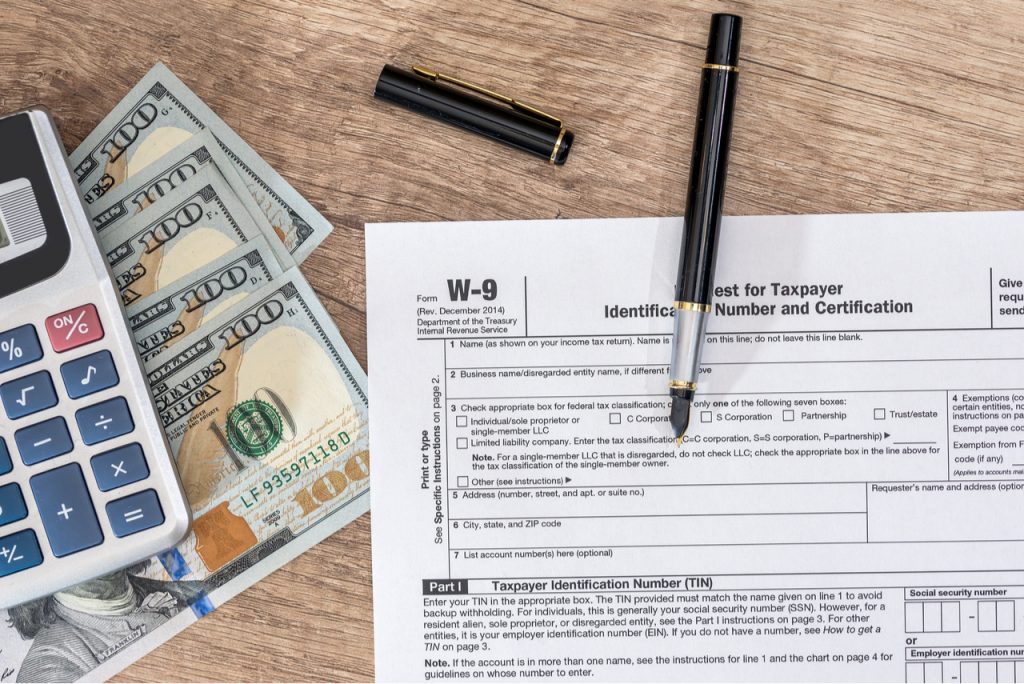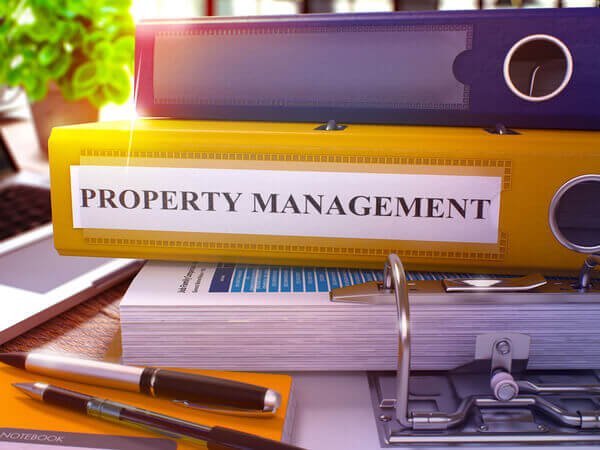How To Start A Property Management Company

If you’re already a property manager and enjoy what you do, you may have at some point thought about starting your own property management company. So you’ll need the answers to some very important questions if you want to start-up your own property management company.
Table of Contents
- How Do I Start A Property Management Company?
- Getting Started
- What Are Some Challenges With Owning a Property Management Company?
How Do I Start a Property Management Company?
A property management company is like many other service businesses. And like any business, your management company will need a place to work and all the equipment that goes along with running an effective modern operation. To keep costs down, many new owners of property management companies start out working from home, and when their business outgrows that setup, they look at renting commercial office space and hiring additional property managers.
Some other factors for you to consider for your move into property management:
Business Structure. Speaking of business, as a new property management service you’ll want to determine what type of legal entity you wish to do business as; usually a Limited Liability Corporation (LLC) or an incorporated business (S-Corp or C-Corp). Fee's usually run around $150-$200 for the legal document creation through services like LegalZoom or Launch by LegalShield, and registration fee's with your state's Attorney General's office range from as low as $10 up to several hundred dollars.
There are pro's and con's to each type of corporation including different tax implications, but you can click here to learn more about which corporate structure is right for your business.
Recommended Additional Reading: Should You Form an LLC For Rental Property?
Licensing. Determine if your company is required to obtain a Property Management License in your state. Of the 50 states including the District of Columbia, most states do require specific licensing for a property management business. The general view across the nation is that a property management company falls within the scope of a real estate broker's activity. As such, 41 states require a Real Estate Brokers license for your property management company, allowing the licensee to conduct both property management and real estate sale activities.
In fact, as of 2018, only six states do not require licensing of any kind (ID, KS, ME, MD, MA, VT).
The remaining four states & DC (DC, MT, OR, SC, SD) only requiring a specific Property Management license, limiting that company to property management activities only.
If you require further information on the requirements in your state, contact your state Real Estate Commission. If you're just getting started, see our definitive guide on how to become a property manager.
Choose Your Name. Select your business name and/or logo. Once you have your management company name and/or logo, have your company stationery such as your business card and brochures made. You can find talented freelance designers on websites like UpWork, 99 Designs or even Fiverr.
Get A Website. Having a presence online is absolutely critical today and a cost-effective asset for you. You’ll need a high-quality property management website for your potential clients and tenants to find your new company. So even before you launch a comprehensive marketing campaign, you’ll have to create this online presence. Once you have your site up and running, you can create a custom company email account.
Phone. Use your existing cell phone for mobile communication with tenants, property owners, and contractors, as you’ll likely spend much of your time out of the office conducting your business on the road.
Lawyer. Real estate law and laws governing property management are many and varied. Consider hiring a real estate attorney for advice, both at the beginning of your startup and if you have any questions or issues along the way. They can assist with questions on a lease agreement, contracts, potential legal liabilities, licensing and compliance in your state. Another option is doing it yourself online if you feel confident you have the experience.
Bookkeeping. All businesses rely on a good bookkeeper, and if you’re starting out on your own this will likely be you. This will be a regular part of your daily property management duties, as you collect rent & fees, pay salaries, record income, pay contractors, meet overhead such as phone bills, electricity, gas etc. Having a good accounting software program that's built for property management can really help you stay on track.
Accounting. At some point, your company will want to engage the services of a CPA especially when tax time rolls around. An accountant can provide the proper tax forms to your clients so they in-turn can report rental income and expenses to the IRS.
Office Equipment. This can include a desktop or laptop computer, copier, scanner, and fax machine.
Propertyware Is Flexible, Scalable, and Affordable
Getting Started
How Do Property Management Company's Get Paid?

1. Determine Your Pricing Structure. This is extremely important to get right. Consider your pricing structure and what you offer for that pricing as a critical function of your property management business. If you've been a property manager for some time, you'll know what the industry standard is for your area and where you fit in the market. If you're just getting started, here are some common fees to consider.
- Setup Fee. Also referred to as an 'onboarding fee', this one-time fee is charged to landlords for the cost of setting up an account with you and can include an initial property inspection and 'welcome' materials for prospective tenants. A typical setup fee is around $300 or less.
- Leasing Fee. This one-time fee is for leasing or re-leasing a property when it becomes vacant. It is generally equivalent to one month’s rent or some percentage of rent like 50%-75%. It covers staging the property, listing the property as available for rent, showing it to prospective tenants, providing applications, screening prospective tenants, preparing the lease, and moving the tenant in.
- Ongoing Management Fee. This is your bread and butter. It can be as much as 10% of monthly rental income, or as low as 3% depending on your local market. It covers day-to-day operations such as communicating with renters, collecting rent, conducting inspections and responding to maintenance & repair requests.
- Late Fee. This fee as the name suggests is for late or missed rent payments and is indicated in the lease. Some property management firms will keep a percentage for the processing of a late fee.
- Maintenance Fees. This can be charged for coordinating maintenance and repairs to a rental unit on behalf of the landlord. Many property management services will charge, for example, an additional 10%-20% on top of a particular repair. Others will charge nothing and include that as a part of the Management Fee. Typical annual maintenance costs to owners are about 1.5 times the monthly rental rate so it can be a significant source of income if you have a significant number of "doors" under your management.
- Lease Renewal Fees. This optional fee is charged when renewing the lease for an existing tenant and is typically around $200 or less.
- Returned Check Fee. Like a Late Fee, this can be charged to the tenant, and the property manager can keep a percentage of the total fee for processing.
- Eviction Fee. This is optional but it's strongly advised that you charge owners this fee, as you will likely be called on to act as the liaison or even official representative for the property owner in the eviction process.
Building Your Local Network
2. Network. This sounds intuitive, and as an experienced property manager, you’ll appreciate the value of an experienced professional network to your property management business. At some point, you will have to outsource work to another contractor or company to help in managing your clients' rental portfolios. You know you can't do it all, so find that reliable and affordable company or contractor and bring them into the fold.
- Plumber
- Electrician
- General Contractor
- Pest Control
- HVAC
- Security
- Carpet Cleaning
3. Join A Property Management Organization. Consider joining a property management organization, doing so will; give you opportunities to network, meet other property managers, real estate agents & vendors, share experiences and knowledge, keep you abreast of industry news, expose you to the latest tools and technology, and give you access to further education and credentials to distinguish yourself from your competition.
The Top 5 Property Management Organizations
- Institute of Real Estate Management (IREM). For residential and commercial real estate managers.
- National Apartment Association (NAA). For apartment industry professionals.
- National Association of Residential Property Managers (NARPM). For real estate property managers of smaller sized properties, real estate agents and brokers.
- Community Associations Institute (CAI). For HOA board members, owners and investors, community managers, association management companies and vendors.
- Building Owners & Managers Association (BOMA). For building owners, managers, developers, leasing professionals, corporate facility managers, and real estate asset managers.
Improve Your Education With Property Management Certifications

4. Continued Education And Certification. This is something all property managers want to consider. You'll not only hone your professional skills but set yourself apart from your competition. If you don't already have them, some of the most common designations are:
- Residential Management Professional (RMP®). This designation is geared towards property managers who want to take their knowledge to the next level. Pre-requisites include managing at least 100 units over a two year period, Letters of Recommendation from 2 current RMP or MPM Designees, completion of 18 hours of NARMP education courses, and more.
- Master Property Manager (MPM®). The pinnacle of professional excellence from NARPM and arguably the equivalent of earning a Master's Degree in Property Management.
- National Apartment Leasing Professional (NALP®). Leasing professionals are the first people prospective residents meet, and often their only gauge of the property staff. This course is designed to teach these professionals skills to help them become top producers.
- Certified Apartment Manager (CAM®). This certificate is designed for the onsite manager, who is a vital link between residents and owners.
- Certified Apartment Portfolio Supervisor (CAPS®). This certification is an in-depth review of property management principles and techniques as used by the professional supervisor.
- Certified Residential Management Company (CRMC®). The gold standard for property management companies that are looking to stand out from the crowd by showing their commitment to education and commitment to the industry. Pre-requisites include having at least one staff member with the MPM designation (see above), verification of at least 500 unit-years, passing an on-site audit, and more.
Only Propertyware Can Scale With Your Business
What Are Some Challenges with Owning a Property Management Company?

Property management can be a tough job, and even more so when you are the owner of the company. Every property management company has its own peculiarities and requires a managing professional who understands everything about the assets they supervise. Drawing on numerous skills and experiences, property managers have to handle a wide range of tasks and challenges in an effort to provide full-service. As with any property management company, certain challenges exist regardless of the rental market you are serving. Some challenges you can face when operating your own property management company are;
Keeping Property Owners and Residents Satisfied
1. Customer Service. As an experienced rental property manager, you know the importance of keeping property owners and renters satisfied. In fact, your businesses success relies on keeping existing clients happy. Almost 70% of consumers have indicated they are prepared to pay more for a better customer service experience. So you’ll want to make every effort to satisfy your owners and tenants by incorporating these points below:
Respond Quickly. This is a big one. Remember, renters are customers too and they value their time as much as you value yours. In our fast-paced society even if you cannot provide an immediate answer or solution, a prompt acknowledgment is expected and appreciated. Stay organized and track all your communications with clients as they come in.
Actively Listen to Renters Concerns. Let’s face it, tenants usually only call when there is a problem. A good property manager will always make time for a tenants concerns, and at least attempt to ease their concerns by ensuring action will be taken in a prompt manner. But be honest and upfront with clients and don’t make promises you can’t keep, outline a realistic timeline for the maintenance request for the tenant or owner - if you can’t get a contractor to fix their AC unit for 24 hours, tell them that. A tenant tells you they will not make rent this week, politely remind them of the potential for late fees and their obligations under the lease. Customers will appreciate the honesty and effort and still feel they are a priority.
Follow-Up. So, you’ve responded quickly and listened to the tenants' concerns. Keep it up. Now is the time to deliver on your promises and solve that rental properties problem. Prioritize your follow-ups, especially when it comes to complaints and maintenance issues. Where there’s smoke, there's fire - so put those fires out as soon as possible. Tenants will appreciate your efforts and will be less inclined to stress if and when they contact you for something in the future.
Recommended Additional Reading: 5 Rental Property Manager Skills That You Must Master
Consistent Communication

2. The Status Quo. It’s important for any property manager to understand that today's victory is tomorrows opportunity. For a property manager, this means not resting on your successes but actively planning for more success in the future.
Monitor Resident Relationships. In the highly competitive world of rentals and property management, it is crucial to have your finger on the pulse of tenants in the properties you manage. Even one poor experience can be enough for some residents to see out their lease, but still move out and seek rental accommodations elsewhere. Take time to talk to long-term tenants and ask them for their opinions and concerns about the rental property, your management company, and even the property owner/landlord.
And at all phases of the rental experience; signing the lease, moving in, paying rent, missing a rent payment, complaint resolution, the condition of the property, staff interaction, other residents, eviction and moving out - ask for feedback. Take that feedback and learn from it. If you or your staff have made some mistakes, now is the time to make sure they’re not repeated. If further training is required for you or your staff - make it happen. If you require more help by way of cutting-edge software, invest in it. All of this is done to improve your efficiency and guarantee tenant satisfaction. Tenant satisfaction and tenant retention go hand-in-hand.
Communicate with Tenants Regularly. Wherever possible, keep tenants in the loop for any activity that may impact their daily lives, be it in their rental property specifically or in the larger community. Give plenty of advanced notice to allow the tenants to make plans. So if you are having the parking lot repaved, don’t wait until the day of work to ask residents to move their cars. This is a really important part of pro-active property management and providing excellent customer service.
Learn How: Propertyware's Tenant & Owner Portal Makes Communication Easy
Communicate Regularly with Property Owners & Investors. The phones are quiet, there are no outstanding maintenance issues and all complaints have been addressed. What do you do as a property manager with a little extra time? Contact the owners about their investment. And I don’t mean through the annual reports or regular bulletins, I mean reach out personally to validate the value your services bring for an owner and their income property, even when things are going smoothly. Send them an email or even call them if time permits. Build rapport with them and let them know “everything’s ok” with their rental property while renewing their confidence in your professionalism.
Finding The Time To Accomplish Everything

3. Time Management. As we’ve seen earlier in this article, managing your time in property management is critical. As a property manager, you know a great deal of time and effort is spent on resolving issues that come your way on a daily basis; from signing lease agreements, to processing a rent payment, to dealing with terminations of bad tenants, to issuing work orders, to conducting a walk-through of a condominium for real estate investors. So being highly efficient ensures that all the necessary tasks can be accomplished in a timely manner to keep occupants happy while freeing you up to focus on other parts of your property management business.
- Use best-in-class property management software to help you become more efficient and organized with your office tasks.
- Document everything. As a professional property manager working in real estate, you must be able to fall back on sound documentation to support you when dealing with tenants, property owners, investors, lawyers, contractors, and other professionals.
- Use an online calendar or scheduling system like Calendly, and schedule your time. Don't leave it to chance.
- Don't multitask; Multitasking in property management can quickly lead to the important things being missed, so break your schedule into blocks. This will be a challenge for a small property management service at first, but you will reap the rewards later when you are more effective.
- Use a system of note-taking when you are working on the fly. Evernote and Google Keep are excellent for this.
4. Lowering Operating Costs. There are two main ways to improve profitability. Increase revenue and lower costs. Lowering costs can be difficult as businesses are constantly battling with fixed and unexpected costs, so hard decisions and a little flexibility will be key to lowering costs. Take a hard critical look at your operation, and determine what and where you can save money.
Get Your Free Trial of Propertyware Today
You're all set!
So you're all set up and have some properties to manage. Being a property manager can be very challenging at the best times, especially if you are on your own. But, for the right type of self-motivated individual, it can be an extremely lucrative and rewarding career. If you feel you have the experience and confidence in offering top-notch property management services, go for it!
Please Note: While every effort has been made to provide accurate and up-to-date information, this guide should not replace the advice of qualified legal and tax professionals.







